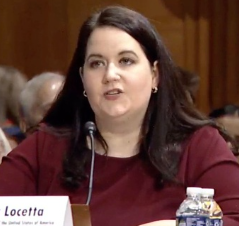The U.S. Alternative Representative for Special Political Affairs to the United Nations on Tuesday lambasted UN agency representatives, saying it is regrettable that they do not hold the Government of South Sudan accountable.
Ambassador Jennifer Locetta, who made the remarks at a UN Security Council Briefing on Sudan and South Sudan, said South Sudan is on the brink of a renewed, large-scale civil war.
“Political violence against South Sudanese citizens is escalating. First Vice President Machar is under arrest, and the transitional government is failing to meet the most basic needs of its citizens,” she charged. “South Sudan’s leaders must immediately reverse course. The United States calls on political leaders to engage in direct dialogue and clearly renounce this violence.”
The envoy highlighted that the international community has provided extraordinary political and economic assistance since South Sudan’s independence.
“The United States alone has contributed over $9 billion dollars in direct bilateral assistance, in addition to billions of dollars more in contributions to international and regional organizations,” she stated. “Unfortunately, the transitional government has not done its part. Far too often, it actively hinders delivery of humanitarian assistance and obstructs UNMISS in their mandated activities and operations.”
Amb. Locetta underscored that rather than using public revenue to improve the lives of its citizens, South Sudan’s leaders have instead prioritized personal enrichment.
“Humanitarian needs today are at an all-time high, despite $25 billion dollars in oil revenue since its independence in 2011,” she stated.
The envoy faulted some international organizations have continued with a “business as usual” approach, calling for more donations without calling out the transitional government for its role in South Sudan’s largely man-made crisis.
“It is particularly regrettable when UN agency representatives will not hold the host government accountable for these perpetual practices,” she charged. “The transitional government must start using public revenue to pay salaries to public officials – including security services – and to fund health, education, and other essential services.”
Locetta also said the Government of South Sudan must immediately cooperate with UNMISS and cease impeding the mission and harassing its people.
“The transitional government must also stop obstructing those who facilitate or provide humanitarian assistance and civilian protection,” she stated. “We strongly condemn the seizure of food aid by government security forces and the ambush of UNMISS forces by armed elements in Western Equatoria.”
In addition, authorities have imposed extralegal fees and denied humanitarian assistance for political purposes, she said.
“These indefensible actions, along with spreading violence, make South Sudan one of the most difficult and dangerous places in the world to deliver assistance,” she added.
The diplomat stressed that when South Sudan’s leaders make headway in tackling corruption and restoring the country’s economy and social welfare system, they will begin to restore confidence in the transitional government’s commitment to peace, stability, and reconciliation.
“Such progress will also attract greater support and long-term investment,” Locetta concluded.




